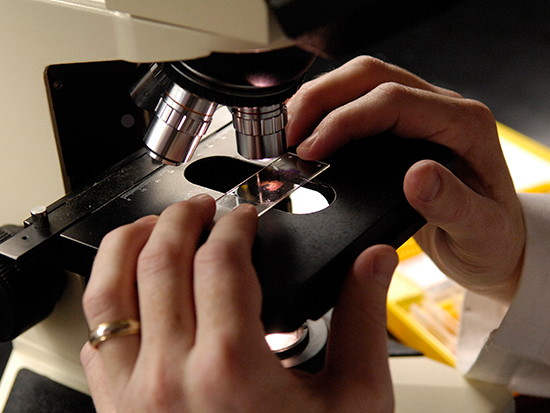University Of Alabama At Birmingham’s Department of Physics honoured with national award for undergraduate education
The University of Alabama at Birmingham College of Arts and Sciences’ Department of Physics is slated to receive the Improving Undergraduate Physics Education Award from the American Physical Society this spring.
The Department of Physics will receive the award and be acknowledged at the APS April Meeting, “Quarks to Cosmos,” in Minneapolis, Minnesota, on April 15-18 during the Education and Diversity Reception. The APS Committee on Education selected the UAB Department of Physics for the award because of its commitment to recruiting new students, enhancing the undergraduate learning and research experience, and prioritizing diversity.
“Students are beginning to realize that the way we structured the program is such that it is the definition of an interdisciplinary program that gives them exposure to multiple career paths,” said Ilias Perakis, Ph.D., chair of the UAB Department of Physics. “Remarkably, faculty in the department are engaging four times as many students in research experiences in their labs as they were prior to the program redesign.”
Perakis and his faculty began collaboratively redesigning the department’s undergraduate program in 2016. Through these planning efforts, they aimed to modernize physics at UAB. The department officially implemented its redesign in 2017. One of the most significant outcomes of the reimagined program was the implementation of new major tracks for students pursuing a Bachelor of Science degree in physics at UAB. The department’s undergraduate tracks include general physics, advanced physics, applied physics, computational physics and biophysics.
Perakis believes, through these major tracks, the department aims to prepare students for a range of careers across industries, noting that the tracks emphasize data fluency and promote problem-solving skills, while pursuing two important goals that prioritize diversity across the department.
“The first goal is to cultivate, nourish and sustain a cultural climate of inclusive excellence and continuous improvement that permeates all departmental missions,” Perakis said. “The second goal is to ensure equitable access to the transformative research and education opportunities offered by the department by overcoming socioeconomic, racial, gender and geographical barriers.”
To achieve these goals, the department transformed online teaching with its Remotely Accessible Interdisciplinary STEMM Education program, implemented new faculty recruitment strategies, and introduced evidence-based programs and courses that emphasize student self-efficacy and STEMM-affinity and support Alabama high school teachers so they can effectively prepare students for college.
Since implementing the program redesign and the career-focused tracks, the department has doubled its total number of students who earn a B.S. degree in physics each year.
In addition, through the International Research Experiences for Students program — which receives support from the National Science Foundation — students get the chance to conduct research in labs across Europe.
“I’m very proud that we are recognized for what we aim to become — a research-driven and student-centric department that prepares students for 21st century careers,” Perakis said. “We’re preparing students for these careers through a traditional physics program that has been modernized. We’re not just preparing undergraduates to pursue Ph.D.s — we’re preparing them for the fourth industrial revolution.”
APS currently represents more than 50,000 members across the world.

